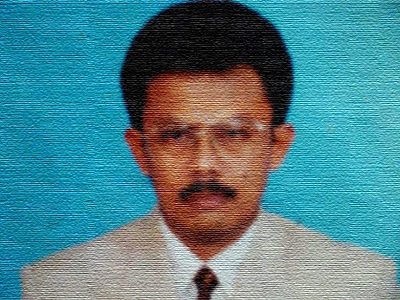Interests:
AWAKENING DESIRE:
UNDERSTANDING FEMALE SEXUAL DYSFUNCTION
Jennifer Wider, MD
Society for Women's Health Research
June 8, 2010
Many women experience problems in the bedroom at one time or another. Female sexual dysfunction is not uncommon and although some women and healthcare providers have difficulty discussing it, it has been recognized by the medical community for decades. In fact, for the last twenty years, it has been listed in the Diagnostic and Statistical Manual of Mental Disorders, a manual published by the American Psychiatric Association, used to classify and diagnose psychological disorders.
Female sexual dysfunction (FSD) can develop at any age, but many women report sexual problems at times of hormonal fluctuation; for example: post-pregnancy or during menopause. FSD encompasses several conditions that can have an effect on a woman’s health and cause concern and suffering. These symptoms include:
The desire to have sex is low or absent.
An inability to maintain arousal during sexual activity, or become aroused despite a desire to have sex.
An inability to experience an orgasm.
Pain during sexual contact.
Hypoactive sexual desire disorder (HSDD) affects roughly 1 in 10 women and is the most common sexual dysfunction among women of all ages. It is sometimes difficult to diagnose because a woman’s sex drive varies tremendously from person to person. And the factors causing a lowered sex drive can range from psychological to biological. But some women underestimate what an important role sexual health plays in their overall health and well-being. And if the lack of desire becomes distressing in any way or interferes with her overall quality of life, she may have HSDD.
Many women suffer in silence and some even feel that a decline in sexual desire is a normal part of aging. According to Sheryl A. Kingsberg, PhD, a clinical psychologist and Professor in the Department of Reproductive Biology at Case Western Reserve University School of Medicine in Cleveland, Ohio: “Women should not be expected to accept a distressing loss of sexual desire any more than they should be expected to simply accept arthritis, acid reflux, or any other condition often associated with aging.”
Unfortunately, HSDD in women is not as well recognized as erectile dysfunction (ED) in men. There are many medications available for the treatment of ED, but currently, there are no US FDA approved medications for women with HSDD. “The problem is further compounded by a lack of attention and interest in women’s sexual satisfaction in many cultures,” says Kingsberg. And as a result, “some women may feel that it is not appropriate to seek help for a sexual problem.”
There are options available. An important step in getting help for FSD is realizing that there is a problem. Too many women ignore their symptoms or are unable to recognize that they have a treatable issue. Kingsberg suggests that: “Women should speak to their partners about the problem and (they may consider) seeing a professional for guidance; this professional may be a counselor, a sex therapist, a physician or nurse practitioner, or some other trusted person.”
Psychotherapy or sex therapy can be very effective in uncovering the different components that may contribute to the problem. There are a few medical treatments which include hormonal therapies that may help some women. “A number of other very exciting new approaches to the treatment of low sexual desire in women are under development,” say Kingsberg, “and may be available soon.”
###
The Society for Women’s Health Research (SWHR), a national non-profit organization based in Washington D.C., is widely recognized as the thought leader in women’s health research, particularly how sex differences impact health. SWHR’s mission is to improve the health of all women through advocacy, education and research. Visit SWHR’s website at swhr.org for more information.
This interest
All interests
Search:
Society for Women's Health Research | 1025 Connecticut Ave., NW, Suite 701, Washington, DC 20036
Phone: (202)223-8224 | Fax: (202)833-3472 | E-mail: info@swhr.org
SWHR does not provide medical advice or give referrals to health care providers. The information provided on this
site is designed to support, not replace, the relationship that exists between you and your doctor.
This website does not accept advertisements.
BLOG DOKTER SPESIALIS KEBIDANAN DAN PENYAKIT KANDUNGAN ( Obstetric's & Gynecologist Blog ) Sumatera Barat.,Indonesia
SAVE YOUR BABY'S, SAVE NEXT GENERATION'S
SAVE YOUR BABY'S, SAVE NEXT GENERATION'S
Search This Blog
- Universitas Andalas Website
- TRIGEMINAL NEURALGIA LECTURES AND TREATMENT
- Maternal and Child :Research and Article
- dr Firman. Abdullah SpOG/ OBGYN .Personal Edition
- dr Firman Abdullah SpOG / ObGyn.com
- Dr Djohanas Djohan Abdullah Memorial Hospital.com
- Bukittinggi International Hospital.com
- Aliansi Rakyat Anti Korupsi Bukitinggi.com
Jam Gadang.Bukittinggi. Sumatera Barat .Indonesia
24.jpg)

Bung Hatta statue ,Bukittinggi
About me.....
IKATAN DOKTER INDONESIA (IDI).Sumatera Barat

INDONESIAN MEDICAL ASSOCIATION
ASSALAMUALAIKUM........
dr Firman Abdullah SpOG / OBGYN
Peer - Review..Cyberounds
Blog Archive
-
►
2008
(1)
- ► March 2008 (1)
-
►
2009
(387)
- ► April 2009 (87)
- ► August 2009 (54)
- ► September 2009 (21)
- ► November 2009 (4)
- ► December 2009 (11)
-
▼
2010
(45)
- ► January 2010 (6)
- ► February 2010 (11)
- ► March 2010 (1)
- ► April 2010 (7)
-
▼
June 2010
(11)
- A Guide to Women's Health: Fifty and forward
- Soy is making kids 'gay'
- The Evidence Against Soy
- INTRODUCTION :Diploma in Fetal Medicine & ISUOG Ed...
- NUCAL TRANSLUCENCY :Diploma in Fetal Medicine & IS...
- Treatment of congenital cytomegalovirus infection:...
- Diagnosis and Management of Human Cytomegalovirus ...
- Vitamin C protects, maintains healthy bone mass
- AWAKENING DESIRE: UNDERSTANDING FEMALE SEXUAL DYS...
- Where did viruses come from?
- Diagnosis and Treatment of Premenstrual Dysphoric ...
- ► November 2010 (2)
-
►
2011
(4)
- ► February 2011 (2)
- ► March 2011 (2)
FEEDJIT Live Traffic Feed
Discussion Board
FEEDJIT Live Traffic Map
FEEDJIT Recommended Reading
FEEDJIT Live Page Popularity
dr Firman Abdullah SpOG / OBGYN

Sunday, June 20, 2010
Subscribe to:
Post Comments (Atom)
BMI CALCULATOR
ACHMAD MOCHTAR GENERAL HOSPITAL BUKITTINGGI

RUMAH SAKIT ACHMAD MOCHTAR BUKITTINGGI
Firman Abdullah Bung
drFirman Abdullah SpOG / ObGyn

KELUARGA BESAR TNI-AD
Dr Firman Abdullah SpOG/ OBGYN, Bukittinggi, Sumatera Barat ,Indonesia
Bukittinggi , Sumatera Barat , Indonesia

Balaikota Bukittinggi
dr Firman Abdullah SpOG / OBGYN

Ngarai Sianok ,Bukittinggi, Sumatera Barat.Indonesia

Brevet in Specialist Obstetric's & Gynecologist 1998

dr Firman Abdullah SpOG/ObGyn


Dokter Spesialis Kebidanan dan Penyakit Kandungan . ( Obstetric's and Gynaecologist ) . Jl.Bahder Johan no.227,Depan pasar pagi ,Tembok .Bukittinggi 26124 ,HP:0812 660 1614. West Sumatra,Indonesia
Sikuai Beach ,West Sumatra ,Indonesia


Fort de Kock, Bukittinggi






No comments:
Post a Comment